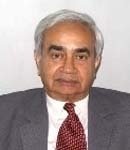War against Terrorism: Some Anti-Thoughts
15 Jul, 2002 · 798
PR Chari raises few pertinent questions regarding the war against terrorism
It is accepted that the 9/11 cataclysm was traumatic for the
United States
. There is universal sympathy for the loss of lives suffered in
New York
and
Washington
on 9/11, although the
US
war against terrorism launched against
Afghanistan
, causing the loss of thousands of innocent civilians has been no less traumatic for that benighted country. This war speedily resolved itself into getting hold of Osama bin Laden and Mullah Omar “dead or alive.” Hence, it has failed to achieve its war aims since both these worthies are widely believed to have escaped into the tribal region between
Afghanistan
and
Pakistan
along with large numbers of the Taliban and Al Qaeda elements. Many of these latter warriors are believed to have slipped into Pakistan Occupied Kashmir (POK), where they present a cause for concern to
India
.
Afghanistan
and incarcerated in
Guantanamo
. In truth, President Bush used the term ‘war’ and expression ‘war against terrorism’ essentially to conjure up evocative language to make it appear that the United States was doing something spectacular to avenge the outrage committed against it by the suicide pilots on September11.
Kashmir
, however, has not ceased; neither is this possible until a political solution is found to the
Kashmir
problem. Some proportion of this terrorism must is obviously being perpetrated by locally based terrorists. Besides, foreign terrorists could be infiltrated through
Nepal
or
Bangladesh
or come via the sea route. It is not clear how stopping cross-border terrorism, assuming
Pakistan
is willing and able to effect this, would help eradicate terrorism in
Kashmir
. Indeed, the communal riots in
Gujarat
have created propitious conditions for hundreds of new recruits to join the terrorists.
Pakistan
, were transformed into freedom fighters when they were drafted against the Soviet occupation of
Afghanistan
, but have been re-converted into terrorists after 9/11. The
United States
had acquiesced in their training and utilization by the ISI and ignored their depredations and human rights violations in
Afghanistan
, especially against women. But, after September 11 they were hunted down as terrorists, responsible for the attacks on the WTC towers in
New York
and the Pentagon in
Washington
. No proof was adduced by the
United States
of their complicity in these attacks, and it is worth reiterating that fifteen of the nineteen terrorists responsible for hijacking the aircraft used in these crimes were Saudi citizens.
Afghanistan
chosen as the culprit to atone for the sins of Osama bin Laden and Mullah Omar, and not
Saudi Arabia
. The list of charges against the ‘keeper of the holy places’ is very long. It supported the Taliban and Al Qaeda in their conflict against the Soviets and later to seize the reins of power in
Afghanistan
. It is no surprise that
Saudi Arabia
recognized the Taliban government in
Kabul
, in the company of
Pakistan
and the
United Arab Emirates
. Besides, it is well known that the Saudis have financially supported the establishment of madrassas in
South Asia
, and bankrolled jihadi organizations all over the Muslim world. Why, then, has Saudi Arabia been exempted from either being attacked or even mildly censured for its stellar role in promoting international terrorism. Has its oil reserves, and American dependence on its manipulation of oil supplies and oil prices, stopped even censure of its nefarious role in promoting terrorism?
There are several questionable aspects of this war against terrorism. For one, using the term ‘war’ is excessive. A war needs being fought against an identifiable enemy; terrorism is a faceless, inchoate phenomenon. War against a phenomenon introduces imprecision into the equation. Furthermore, ‘war’ has a precise connotation in international law; consequently prisoners of war are entitled to the protection of the Geneva Conventions. This creates problems as was witnessed in the inhumane treatment of Taliban/Al Qaeda soldiers captured in
Bush’s actions are comparable to those of Prime Minister Vaypayee after the terrorist attack on the Indian Parliament on December 13. High rhetoric followed to justify the need to proceed against cross-border terrorism by massively dispatching the Indian armed forces to the Indo-Pak border, where they remain deployed to this date. Terrorism in
There are further inconsistencies which can be framed in the question: is the war against terrorism contextual? Can terrorists become freedom fighters in one avatar and terrorists again in another avatar? This might appear impossible; apropos the Taliban, who were trained by the ISI in
Which brings us to another aspect of the war against terrorism. Why was
The short conclusion is possible that the war against terrorism cannot be contextual; it must be absolute. A pick and choose policy will not work. The problem is: who will cast the first stone with skeletons rattling away in various national cupboards. Cynicism, therefore, might remain the name of the game.


